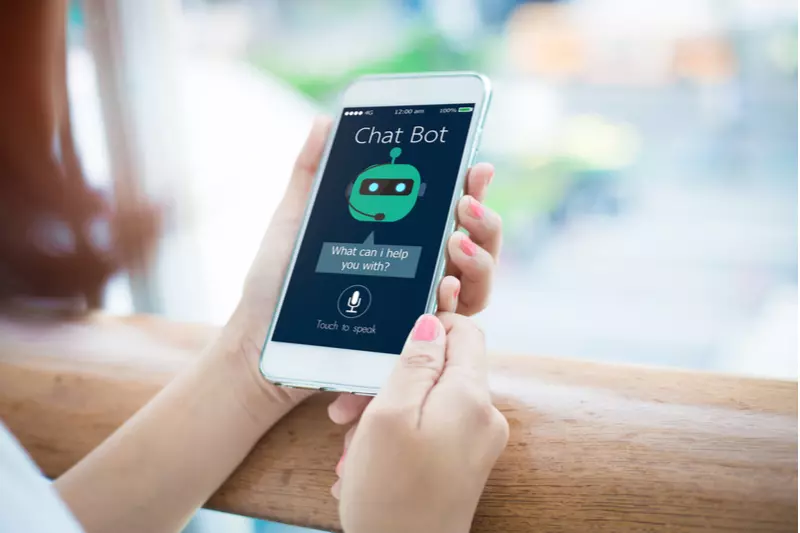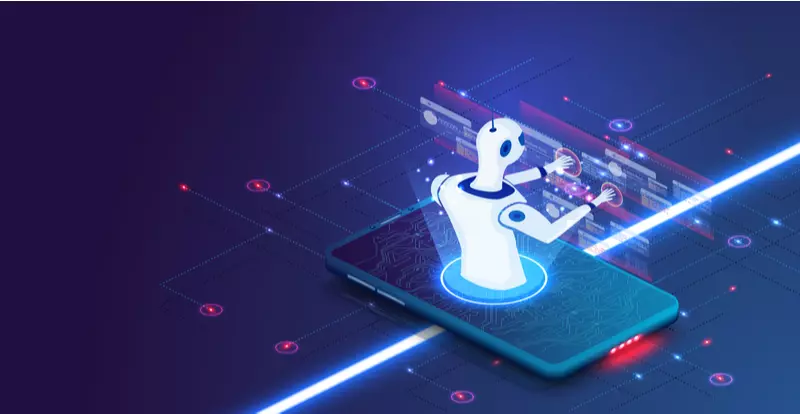We Depend on AI Every Day Without Realizing It
While you may still think about AI as if it were a futuristic talking robot, we have news for you! As a matter of fact, Artificial Intelligence is showing up more and more in our day-to-day lives in many ways that we simply take for granted.
Artificial Intelligence technology has, in fact, been around for decades—granted, in designs that are a tad mundane compared to self-driving cars or facial-recognition tech. In truth, smart technology contributes so much behind the scenes, leaving you in awe of its actual effects on your daily lives. Keep in mind that AI software development is an extensive market, plus the technology is on a constant path of improvement.
AI Molds Our Decisions & Purchases

This is probably the most obvious way through which AI touches our daily life. The algorithms managed by companies such as Amazon, Netflix, and Facebook collect data on your browsing manners and habits to market to you in a more efficient way. These algorithms are, in fact, the works of artificial intelligence since they derive your choices and produce predictions based on what they “learn” about you.
More so, if you just so happen to use Google—just like everyone else—as your go-to search engine, you have probably come to notice that Google offers recommendations on the questions you pose. This convenient predictive search data surfaces based on data Google gathers about you as you surf the web. They also rely on other resources such as your age, location, and other personal details.
From tailored product recommendations to query assistance on the web, your time navigating the web has just been cut short.
It Can Execute Judgements About Your Health
AI is becoming an integral part of the way we handle our health concerns. For instance, in early 2018, Google declared an eye-scanning technology that could use AI to recognize signs of heart problems. Moreover, in 2017 TIME magazine published that machine learning technology has largely shaped the health world, ranging from research on genetics to apps that help identify depressive symptoms.
For a more “unnoticed” approach, smartwatches are currently playing a crucial role in determining various health-related problems. From constantly monitoring your heartbeat, reminding you to perform breathing exercises, to pushing you to complete the necessary steps throughout the day, smartwatches are looking out for you in more than one way.
AI Can Give On-The-Go Help

The communication of social media and robots capable of chatting, reacting, and learning from what people tell the, has been proven a reliable source over the years. For example, Microsoft introduced the ever-evolving technology in AI known as the chatbot in 2016, where users are able to chat or interact with bots on any issue. Chatbots are now running as the frontline for customer service offices and other online businesses. So, the next time you log onto a website, a small chat box pops up in the corner; the chances are that is a bot trying to reach out to you. Chatbots have the ability to handle simple commands and resolve quick issues. Bots use AI to assist customers in finding information, and the bot provider also profits as it can log customer usage data and market to their consumers for distinct requirements.
Your Digital Assistant Is an AI in a Phone
Look at it this way: the next time you talk to Siri, Cortana, Alexa, or any other digital assistant, you are technically filling data into an artificial intelligence system that will later use it to organize new choices and options for you. Another well-known feature used in a cellphone is Google Assistant, allowing users to implement voice-activated commands and searches. From receiving directions to your favorite lunch spot to asking about the weather for a weekend getaway, digital voice assistants are promptly becoming the assistant we did not we needed through life.
Every time you talk to Siri, Cortana, Alexa, or any other digital assistant, you’re feeding data into an artificial intelligence system that uses it to curate new choices and options for you in the future. This is one of the big ways AI influences our lives: the personal products created to serve us in our smartphones, bringing up that Korean restaurant we liked once and suggesting good local kickboxing places are an example of machine learning in action.
Also, can we talk about smart selfie improvements? iPhone users are much too familiar with these features when switch to portrait mode while taking a photo—little do they know this is performed by using AI for perspective identification.
AI is Implemented to Create News
The creation of ‘fake news’ has rather become a significant ordeal over the past few years, and AI may be playing a role in it. Recent studies now show that algorithms are completely competent in generating fact-driven articles and news stories in limited periods, which in turn plays a significant role in decreasing the need for professional writers. However, this creates the unforeseen possibility of electronic “news shops” that may spam readers with false information. Artificial intelligence is growing year after year, making its ability to generate shockingly human-like content all the more likely. Language models such as GPT-3 can now produce entire articles on their own. Today, any individual, even with inadequate expertise, can effortlessly create fake images or videos using a computer or a mobile phone. Open-source software such as FaceSwap and DeepFaceLab have made the process easier for them. The future of AI in journalism will be interesting, especially when it comes to incorporating human creativity and accuracy with machine learning.
Artificial intelligence will keep developing and altering many of the ways in which we live our lives; however, it is essential not to take it as a new trend. AI has been part of everyday reality for many years now, but we are only recently starting to scratch the surface of its potentialities and the ways it could go awry. Now that you have seen what AI can genuinely do and may do in the future, can you even begin to imagine living with these benefits?



